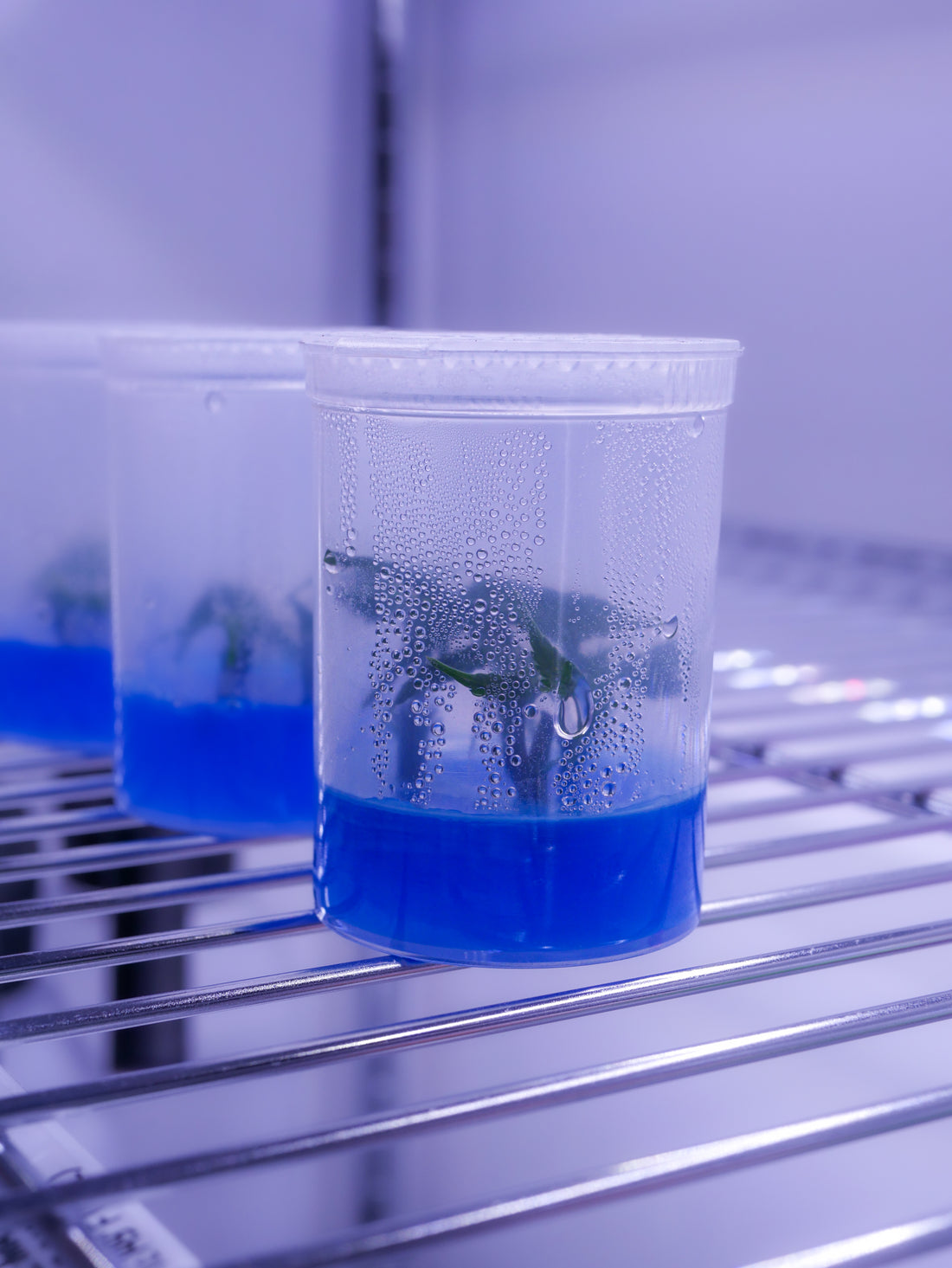
The Future of Cannabis Cultivation: Tissue Culture Techniques Explained
Share
The cannabis industry has experienced a remarkable transformation in recent years, with advancements in cultivation techniques paving the way for a more sustainable and efficient future. One such innovation that has gained significant attention is the use of tissue culture techniques in cannabis production. At Desert Wave Genetics, a professional tissue culture lab in New Mexico, we are at the forefront of this exciting development, specializing in cannabis cultivation while also exploring its applications across the broader agricultural landscape.
Understanding Tissue Culture
Tissue culture is a biotechnological process that involves the controlled growth and propagation of plant cells, tissues, or organs in a sterile, artificial environment. This technique allows for the rapid multiplication of genetically identical plants, known as clones, from a small sample of the original plant material.
The key advantages of tissue culture in cannabis cultivation are numerous. By maintaining strict control over the growth environment, tissue culture ensures the production of disease-free, genetically stable plantlets. This not only enhances the consistency and quality of the final product but also significantly reduces the risk of crop loss due to pests or pathogens.
The Science Behind Tissue Culture
The process of tissue culture begins with the selection and preparation of the explant, which is the small piece of plant material used to initiate the culture. This explant is then placed in a growth medium, a nutrient-rich solution that provides the necessary nutrients, hormones, and environmental conditions for the plant cells to thrive.
The growth medium is carefully formulated to promote the desired growth and development of the plant tissue. Specific growth hormones, such as auxins and cytokinins, are added to the medium to stimulate cell division, root formation, and shoot development. Additionally, the environmental conditions, including temperature, light, and humidity, are meticulously controlled to optimize the growth and proliferation of the plant cells.
Benefits of Tissue Culture in Cannabis
The application of tissue culture techniques in cannabis cultivation offers several compelling benefits. Firstly, tissue culture allows for the preservation of valuable genetic material, ensuring that desirable traits and characteristics are maintained and propagated. This is particularly important in the cannabis industry, where growers strive to maintain the genetic integrity of their strains.
Secondly, tissue culture produces disease-free plantlets, reducing the risk of introducing pests or pathogens into the grow environment. This not only enhances the overall health and quality of the plants but also minimizes the need for costly and potentially harmful pesticide applications.
Moreover, tissue culture techniques enable a high degree of consistency in cannabis production. By maintaining precise control over the growth conditions, growers can ensure that each batch of plants exhibits the same desirable traits, such as potency, aroma, and yield. This consistency is crucial for meeting the demands of the rapidly evolving cannabis market and satisfying the expectations of discerning consumers.
Finally, tissue culture offers significant advantages in terms of space and resource efficiency. By propagating plants in a controlled, sterile environment, growers can maximize the use of available grow space and minimize the resources required for cultivation, such as water, nutrients, and energy.
Challenges and Considerations
While the benefits of tissue culture in cannabis cultivation are substantial, there are also some challenges and considerations to keep in mind. The initial setup costs for a tissue culture lab can be relatively high, requiring specialized equipment, facilities, and technical expertise. Additionally, the ongoing maintenance and operation of a tissue culture facility require a high level of attention and care to ensure the continued health and viability of the plant cultures.
Regulatory considerations are also an important factor, as the use of tissue culture techniques in cannabis production may be subject to specific rules and guidelines in various jurisdictions. Growers must stay informed and compliant with the relevant regulations to ensure the legality and safety of their operations.
The Future of Cannabis Cultivation
As the cannabis industry continues to evolve, the role of tissue culture techniques in shaping the future of cannabis cultivation is becoming increasingly evident. By leveraging the precision and consistency offered by tissue culture, growers can optimize their production processes, improve product quality, and enhance their overall competitiveness in the market.
Moreover, the integration of tissue culture with other emerging technologies, such as automation, artificial intelligence, and data analytics, holds the potential to further revolutionize the cannabis industry. As these technologies converge, growers will be able to streamline their operations, enhance decision-making, and drive even greater efficiencies in their cultivation practices.
Conclusion
The future of cannabis cultivation is undoubtedly shaped by the advancements in tissue culture techniques. At Desert Wave Genetics, we are proud to be at the forefront of this exciting development, using our expertise in tissue culture to push the boundaries of what is possible in the cannabis industry. By harnessing the power of this innovative approach, we are not only improving the quality and consistency of our products but also contributing to the overall sustainability and efficiency of cannabis cultivation. As the industry continues to evolve, we remain committed to exploring the full potential of tissue culture and its role in shaping the future of this dynamic and rapidly growing market.